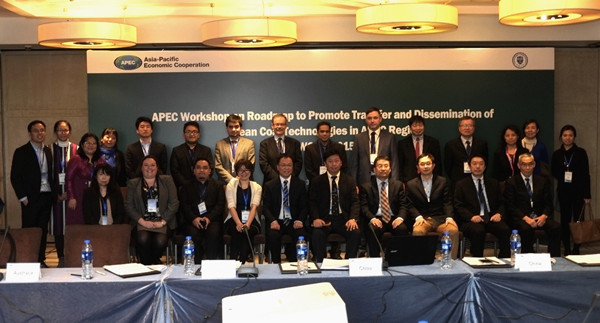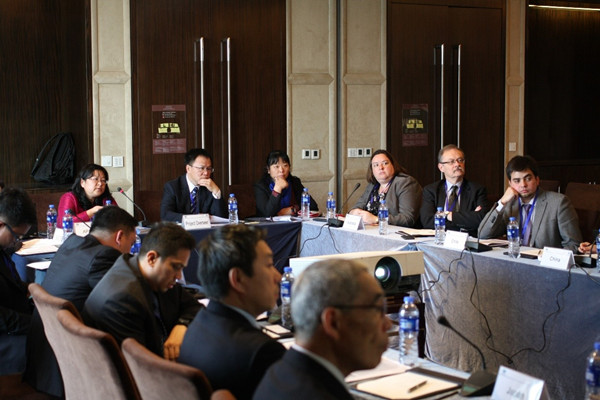

From November 3 to 5, 2016, the Asia-Pacific Energy Sustainable Development High Level Forum and APEC Workshop on the Roadmap to Promote the Transfer and Dissemination of Clean Coal Technologies in APEC Regions was successfully held in Tianjin. Chen Jiongxiao, the head of the APEC energy working group, eighteen representatives from eight economies including China, Australia, Japan, South Korea, and Russia, and many delegates from renowned domestic enterprises attended the meeting. Professor Ma Xinbin, the project overseer and Dean of the School of Chemical Engineering and Technology at Tianjin University presided over the seminar. Professor Wang Shengping, the project assistant presented a comprehensive and detailed introduction to the work in progress and results of projects over the past year.
As special guests, Xu Shisen, Dean of the Institute of Clean Energy at China Huaneng Group, Zhuang Ye, chief scientist at the China Guodian Corporation, Zhang Lan, Chief Scientist from the Shenwu Institute, Zhang Yulong, senior researcher from the Shenhua International Institute of Clean-And-Low-Carbon Energy, Ma Jinfeng, Professor of the Northwest University, Liu Xiaoli, researcher at the National Development and Reform Commission (Energy Economic) and the Development Strategy Research Center explained the application of clean coal technology in their respective fields.
Representatives from other countries, such as Professor Sang-Eon Park, from Inha University, Mark Christian Marollano, a senior researcher from the State Department from the Republic of the Philippines Energy Policy Planning Bureau, Professor Alan Chaffee, from Monash University, Kerensky Saito, from the Ministry of Trade & Industry Coal Department from Japan, Keiji Makino, senior researcher from the Japan Coal Energy Center Strategy, Planning and Information Department attended the meeting and gave oral reports. The reports covered many fields, such as the sealing, reservation, collection and use of CO2, coal-fired power generation and the coal chemical industry. The guests earnestly discussed the latest scientific progress, policies, commercial applications and the further promotion of clean coal technology. They suggested methods, aimed at better serving the sustainable development of Asia-Pacific energy needs.
At the closure of the meeting, all those present visited a large-scale instrument analysis test platform in the School of Chemical Engineering and Technology and the Basic Chemical Experiment Center and witnessed the running of the carbon chemical laboratory, and exchanged opinions about chemical research and education. Later, all the representatives discussed the promotion of the Asia-Pacific clean coal technology economy and related policies and initiatives, and exchanged views on deepening regional cooperation for clean coal energy.